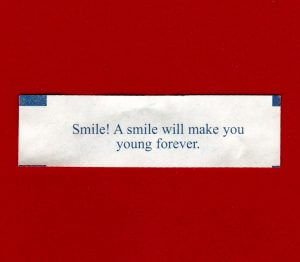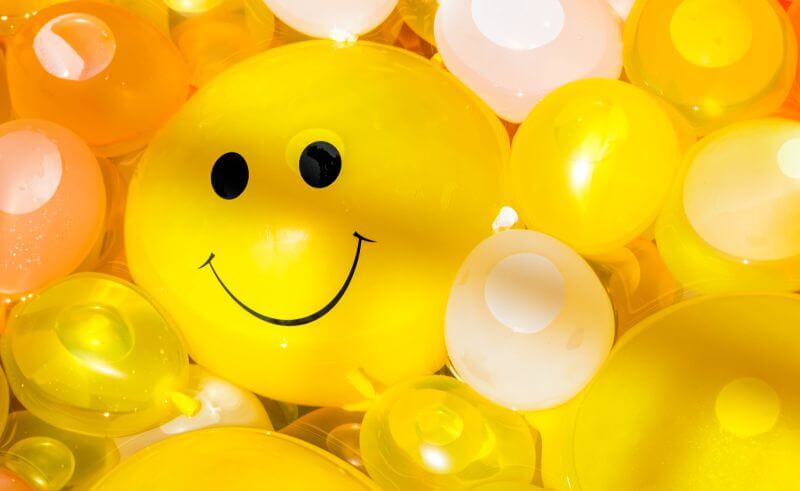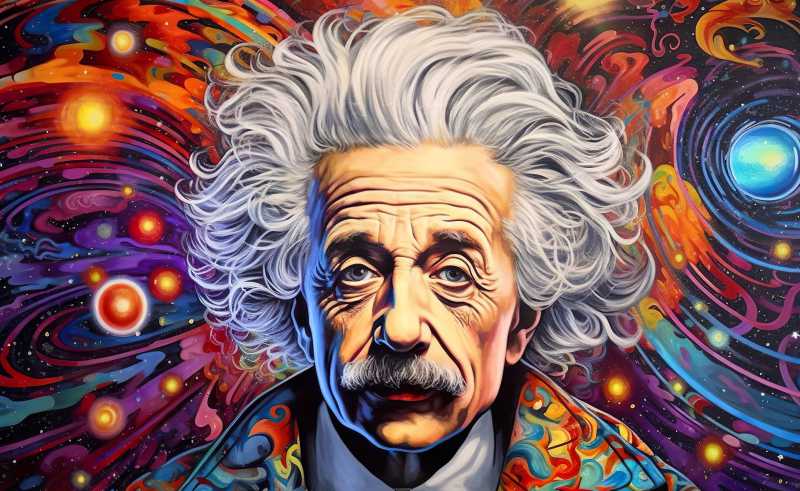Fortune Cookie Friday: A Youthful Smile
 It’s Friday again, and that makes me happy. I really enjoy posting my messages for others to read. I also look forward to the weekend ahead. Along with my jovial attitude, I usually wear a smile. But did you know that the upturned corners of our mouths can play an essential role in our lives?
It’s Friday again, and that makes me happy. I really enjoy posting my messages for others to read. I also look forward to the weekend ahead. Along with my jovial attitude, I usually wear a smile. But did you know that the upturned corners of our mouths can play an essential role in our lives?
People smile for all sorts of reasons. Some spread a grin when they see another friendly face. Others beam with contentment when alone in their thoughts. Although we start smiling before we are born, our real, non-reflexive smiles begin at around three months of age. Our early smiles are one of our first methods of communication and social interaction. It isn’t long before we start using our smiles to our advantage, but will they make us younger?
There are multiple studies on smiling. A 2011 study, published in Psychology and Aging, states that smiling can make us look younger. While this information may be handy for snapping the best selfie, another study from 2017 says that our smiles can make us look older. These conflicting reports are enough to make one cringe.
Our smiles are not as simple as they seem. There are many different types of smiles. Of the 19 different kinds, only six are from happiness. The rest of our smiles, such as those from embarrassment, pain, or fear, are less about what we are feeling and more about what we want to signal to others, even if we are not conscious of it.
So do those smiles from happiness make us look better than our regular expression? As Billy Crystal’s Saturday Night Live character Fernando always says, “It is better to look good than to feel good.” Well, darling, “you look mahvelous,” but looks fade.
 What we really should be focusing on is the power of the smile, not as a measure of beauty, but as an emotional cue. Smiles can affect our body and mind. I wrote a post not too long ago, on how a smile can physically make you feel better.
What we really should be focusing on is the power of the smile, not as a measure of beauty, but as an emotional cue. Smiles can affect our body and mind. I wrote a post not too long ago, on how a smile can physically make you feel better.
Smiling activates the release of “feel-good” chemicals that help us deal with stress and reduce pain. These good feelings then make us smile and, voilà, a happiness feedback loop. Even a forced smile can make us feel better. Go ahead; give a grin.
Our smiles don’t just have an impact on ourselves. Like I mentioned before, our facial expressions can communicate emotion to others. That pleasant smile we have when we meet new people says that you are warm and inviting. People react positively to that type of social cue. They will be more likely to associate with you, and in turn, you can experience pleasant conversation or possibly make a new friend.
That smile is also contagious, just like a yawn. When we smile at someone, they tend to smile right back. If we add in the effect of the feedback loop, we all start feeling happy. Soon we are standing in a room full of happy, smiling people.
Perhaps if we had more social occasions where we all just smiled at each other instead of opening our mouths and sticking in our foot, we would be a happier society. Feel free to try this as a social experiment. Just let me know how it turns out. I’m sure it will put a smile on my face.
Can a smile make us young forever? Our general happiness makes us feel youthful and more alive. So, I guess you could say that a smile will make us younger. More importantly, it can make us happy enough to enjoy whatever age we are.




